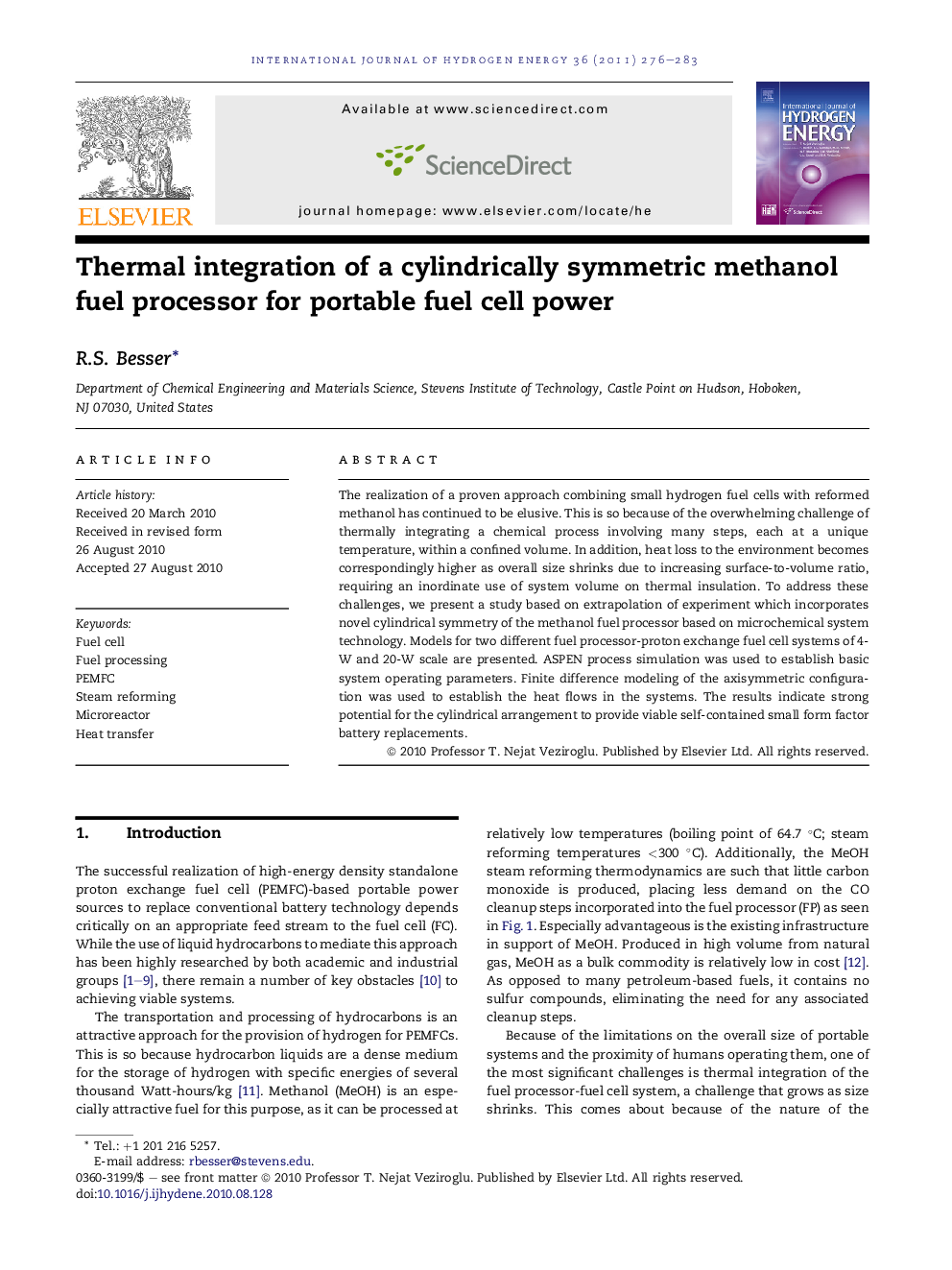| Article ID | Journal | Published Year | Pages | File Type |
|---|---|---|---|---|
| 1277776 | International Journal of Hydrogen Energy | 2011 | 8 Pages |
The realization of a proven approach combining small hydrogen fuel cells with reformed methanol has continued to be elusive. This is so because of the overwhelming challenge of thermally integrating a chemical process involving many steps, each at a unique temperature, within a confined volume. In addition, heat loss to the environment becomes correspondingly higher as overall size shrinks due to increasing surface-to-volume ratio, requiring an inordinate use of system volume on thermal insulation. To address these challenges, we present a study based on extrapolation of experiment which incorporates novel cylindrical symmetry of the methanol fuel processor based on microchemical system technology. Models for two different fuel processor-proton exchange fuel cell systems of 4-W and 20-W scale are presented. ASPEN process simulation was used to establish basic system operating parameters. Finite difference modeling of the axisymmetric configuration was used to establish the heat flows in the systems. The results indicate strong potential for the cylindrical arrangement to provide viable self-contained small form factor battery replacements.
